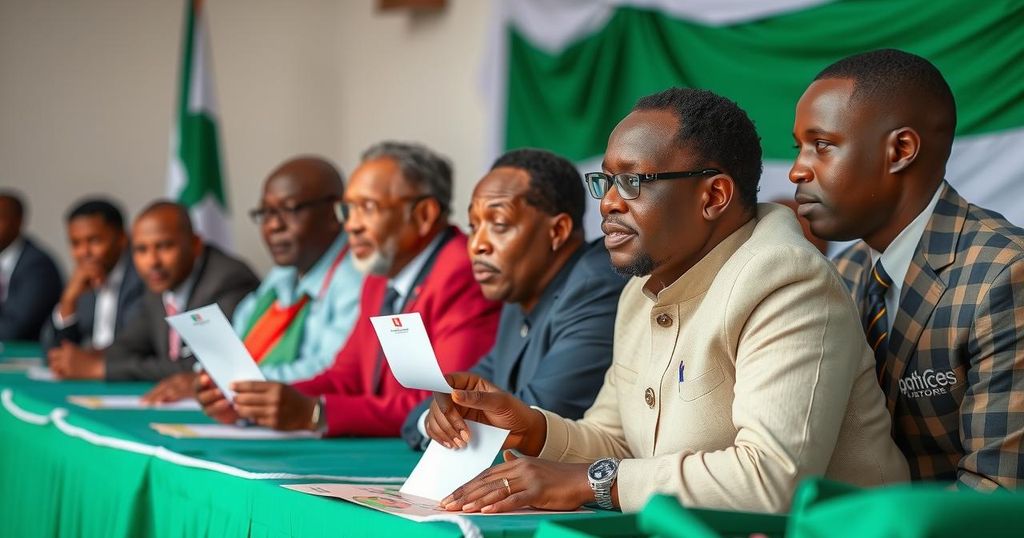Opposition Boycotts Comoros Parliamentary Election Amid Allegations of Authoritarianism

Comoros held parliamentary elections amid opposition boycotts, citing accusations of authoritarianism by President Azali Assoumani. Approximately 330,000 voters were registered in a nation grappling with distrust in its democratic processes. The elections come after claims of fraudulent practices in previous votes, further complicating the political climate.
Comoros conducted its parliamentary elections on a Sunday, amidst a boycott by several opposition factions. These leaders accused President Azali Assoumani and his dominant party of becoming increasingly authoritarian and undermining electoral integrity. The election, designed to fill 33 legislative seats, follows a contentious political environment characterized by skepticism about democratic processes. Approximately 330,000 of the 850,000 residents were registered to vote, but opposition groups predicted low participation rates due to widespread disillusionment.
President Assoumani’s party had previously secured 20 of 24 contested seats in the last election, held in 2020, which opposition parties denounced as undemocratic. Assoumani himself cast his vote in Mitsoudjé, despite the backdrop of protests arising from allegations of electoral fraud in past elections. Notably, the Juwa Party, led by former President Ahmed Abdallah Sambi, was among those refraining from participating in the election.
Comoros, an island nation that has experienced a tumultuous political history marked by military coups since its independence from France in 1975, has seen Assoumani at the helm multiple times. After returning to power in 2016, Assoumani amended the constitution to enable extended leadership, establishing a platform for non-competitive elections amid escalating political repression, as articulated by the Africa Center for Strategic Studies. Despite potential disruptions from Tropical Cyclone Dikeledi, the electoral process proceeded as planned.
The Comoros archipelago, located in the Indian Ocean, has a turbulent political history fraught with military coups and governance challenges since gaining independence in 1975. President Azali Assoumani, a former military officer, first came to power in 1999 through a coup and has since dominated the political landscape, having switched roles and amended constitutional terms to sustain his leadership. As the country grapples with disillusionment among the populace and claims of electoral malpractice, the dynamics surrounding the electoral process are critical to understanding current political tensions.
The recent parliamentary elections in Comoros have been overshadowed by opposition boycotts and claims of a deteriorating democratic process under President Azali Assoumani. These circumstances reflect a growing sentiment of dissatisfaction among the electorate towards the ruling government, compounded by past allegations of electoral fraud. With international observers noting the political repression during Assoumani’s administration, the future of Comoros’ democratic practices hangs in the balance as it continues to navigate its tumultuous political landscape.
Original Source: www.seattletimes.com







